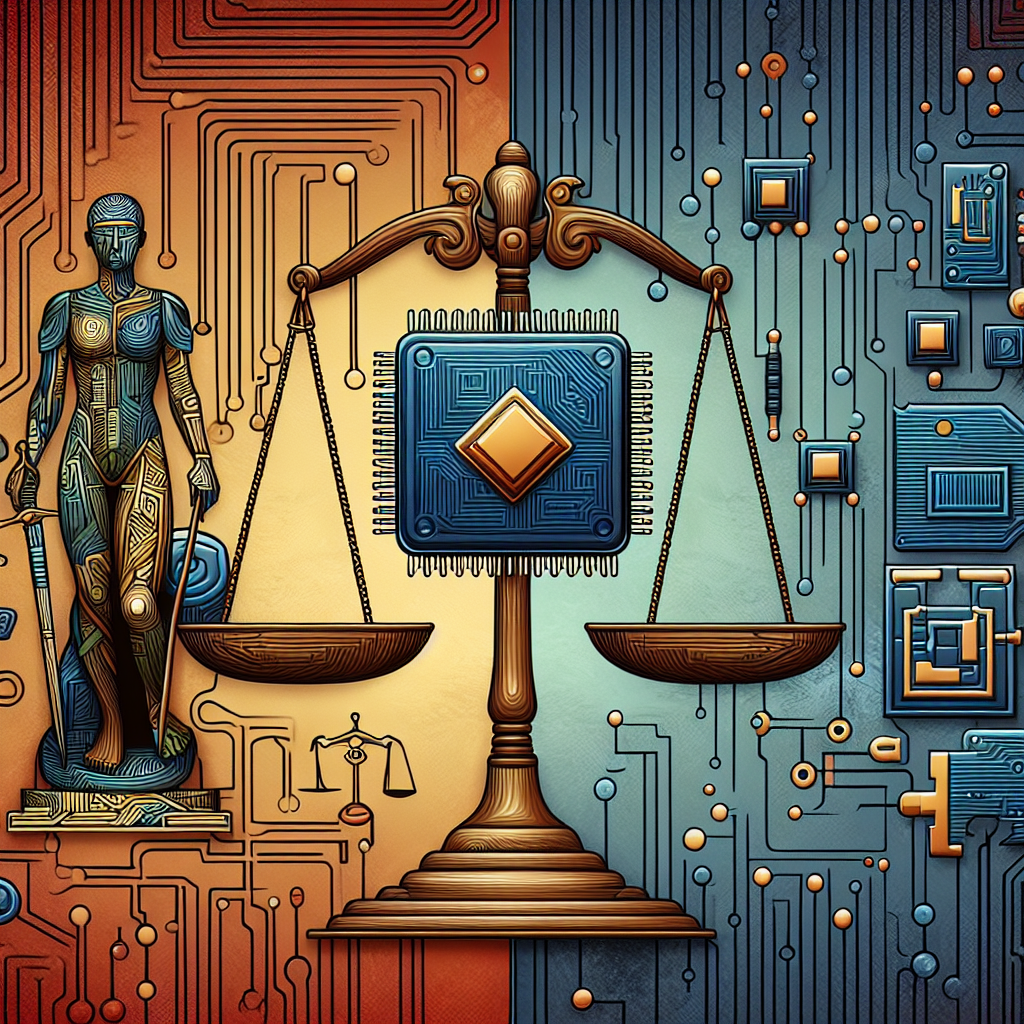Artificial intelligence (AI) has been revolutionizing various industries, and the legal sector is no exception. The use of AI in legal services has the potential to streamline processes, increase efficiency, and improve accuracy. However, implementing AI in legal services comes with its own set of challenges. In this article, we will discuss some of the key challenges of implementing AI in legal services and how they can be overcome.
One of the main challenges of implementing AI in legal services is the resistance to change. Many legal professionals are accustomed to traditional ways of working and may be hesitant to adopt new technologies. There may be concerns about job security, the accuracy of AI systems, and the potential for AI to replace human lawyers. To overcome this challenge, it is important to involve legal professionals in the implementation process from the beginning. By providing training and support, and demonstrating the benefits of AI in legal services, organizations can help alleviate fears and encourage adoption.
Another challenge is the lack of data quality. AI systems rely on large amounts of data to learn and make predictions. In the legal sector, data may be scattered across different systems and formats, making it difficult to access and analyze. Additionally, legal data is often sensitive and confidential, raising concerns about data privacy and security. To address this challenge, organizations need to invest in data management systems that can collect, store, and analyze data in a secure and compliant manner. They should also develop clear policies and procedures for data access and usage to ensure compliance with regulations such as GDPR and HIPAA.
Integration with existing systems is another challenge of implementing AI in legal services. Many law firms and legal departments already use a variety of software and tools to manage cases, documents, and communications. Integrating AI systems with these existing systems can be complex and time-consuming. It may require custom development, API integration, and data migration. To overcome this challenge, organizations should carefully evaluate their current systems and processes to identify areas where AI can add value. They should also work closely with AI vendors and technology partners to ensure seamless integration and interoperability.
One of the most significant challenges of implementing AI in legal services is ensuring transparency and accountability. AI systems can be complex and opaque, making it difficult to understand how they reach their decisions. In the legal sector, where decisions have far-reaching consequences, transparency and accountability are crucial. Organizations need to ensure that AI systems are fair, unbiased, and compliant with legal and ethical standards. They should develop clear guidelines for the use of AI in legal services, establish mechanisms for auditing and monitoring AI systems, and provide explanations for AI decisions when necessary.
Ethical considerations are another challenge of implementing AI in legal services. AI systems are only as good as the data they are trained on, and biases in the data can lead to biased outcomes. In the legal sector, where justice and fairness are paramount, it is essential to address biases in AI systems. Organizations should implement measures to identify and mitigate biases in data, algorithms, and decision-making processes. They should also educate legal professionals about the ethical implications of using AI in legal services and develop codes of conduct and guidelines for ethical AI usage.
In conclusion, implementing AI in legal services comes with a unique set of challenges, including resistance to change, data quality, integration, transparency and accountability, and ethical considerations. However, by addressing these challenges proactively and collaboratively, organizations can harness the power of AI to improve efficiency, accuracy, and access to justice in the legal sector.
FAQs:
Q: Will AI replace human lawyers in the future?
A: While AI has the potential to automate certain tasks and processes in the legal sector, it is unlikely to replace human lawyers entirely. AI can augment the work of legal professionals by streamlining processes, increasing efficiency, and improving accuracy. Human lawyers bring critical thinking, judgment, and empathy to the table, which AI cannot replicate.
Q: How can legal professionals prepare for the adoption of AI in legal services?
A: Legal professionals can prepare for the adoption of AI in legal services by staying informed about the latest developments in AI technology, participating in training programs and workshops on AI, and collaborating with AI experts and technology partners. They should also be open to embracing new technologies and adapting to changing industry trends.
Q: What are some examples of AI applications in legal services?
A: Some examples of AI applications in legal services include contract review and analysis, legal research and case law analysis, predictive analytics for case outcomes, document automation and management, e-discovery and litigation support, and virtual assistants for client communication and scheduling. These AI applications can help legal professionals work more efficiently and effectively.

